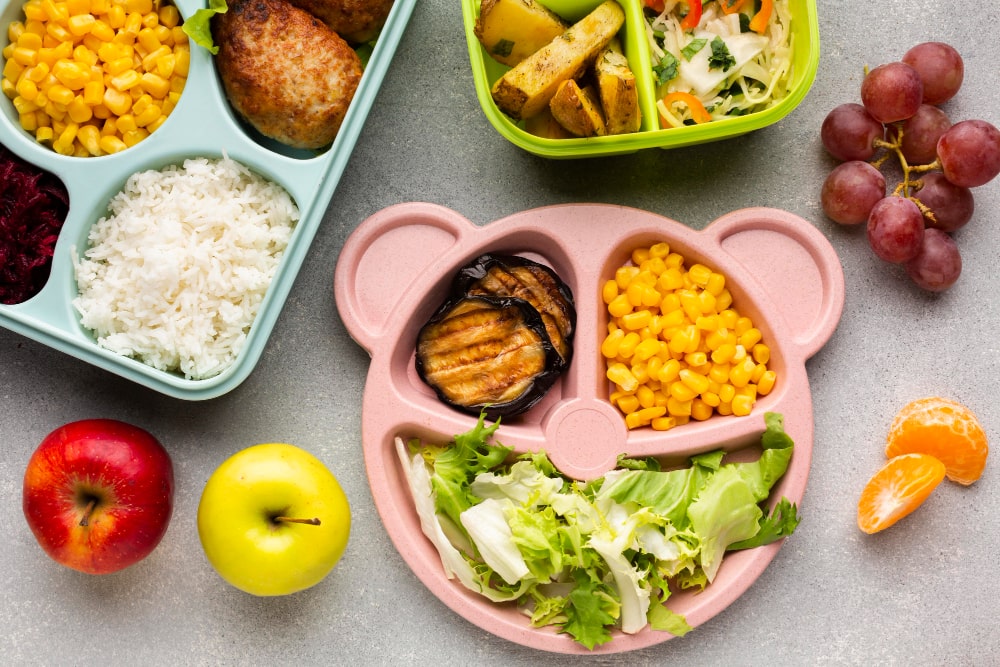Teaching children healthy eating habits is important as they affect their physical health and brain function. At schools like CMR Gandhi Public School in Bangalore, parents need to support these habits at home. Here are some tips for parents to help their children develop healthy eating habits.
Introduce a Balanced Diet: Introducing Variety
A balanced diet is essential for a child’s growth, providing the nutrients needed for energy, brain development, and overall well-being. The key to a balanced diet in children is introducing them to various foods early on. This includes:
- fruits
- vegetables
- whole grains
- lean proteins
- healthy fats
Always providing children with different textures, flavours, and food groups helps to develop their palate for essential nutrients. When children see healthy eating as a normal and enjoyable part of life, they are likely to continue these habits into adulthood.
The Rising Concern: Increasing Diabetes and Fatty Liver in Children
In recent years, childhood obesity, diabetes, and non-alcoholic fatty liver disease (NAFLD) have been on the rise due to poor eating habits. Many children consume diets high in processed foods and sugar, leading to excessive weight gain and metabolic issues.
According to several health studies, children who are overweight or obese are at a higher risk of developing Type 2 diabetes and NAFLD early in life. Parents must prioritise healthy eating patterns to prevent these conditions, focusing on nutrient-rich, whole foods over calorie-dense, processed options.
Make Healthy Foods Fun and Appealing
Children are more likely to eat healthy foods if they find them visually appealing and fun. Get creative by serving fruits and vegetables in interesting shapes or as part of colourful meals.
You could also engage children in the food preparation process by washing vegetables or mixing ingredients. The more involved they are in preparing their meals, the more excited they will be to eat them. We at CMR Gandhi Public School, a CBSE school in Bengaluru, request that parents send healthy food for lunch, talk about healthy and energy-rich foods, and teach children the basics of cooking. Parents can extend this principle to the kitchen to make healthy eating an enjoyable experience.
Teach Portion Control and Mindful Eating
Portion control and mindful eating make children understand their intake capability and recognise when hungry and full. Avoid pressuring them to finish everything on their plate if they say they are satisfied. This is an opportunity for parents to observe children’s portion sizes, especially with calorie-dense foods like rice or pasta. Because, even with healthy foods, overeating can contribute to excessive weight gain and disrupt healthy eating habits.
Hydration: The Importance of Water
Children play excessively at school and home, forgetting to hydrate themselves. Parents could remind them or assign a bottle encouraging them to drink water regularly, as it hydrates them, aids digestion, and regulates body temperature for a healthy body and cognitive function.
Limit sugary drinks like sodas and juices packed with empty calories, contributing to poor health and dehydrating the body. Make water, tender coconut water or lemonade the default beverage at home, and in lunchboxes so children grow accustomed to them as their primary source of hydration.
Avoid Using Food as a Reward or Punishment
It can be tempting to use food (especially sweet delicacies – ice creams, chocolates, cakes, etc) as a reward for good behaviour or to withhold it as a punishment. Still, this approach can create an unhealthy relationship with food. When food is used this way, children may develop emotional eating habits, turning to food for comfort or as a reward later in life. Instead, find other ways to praise or discipline your child, such as offering a favourite activity as a reward or using time-outs for misbehaviour.
Educating Children on Nutrition and Healthy Choices
Finally, teaching children about nutrition and the benefits of healthy eating is essential. Schools like CMR Gandhi Public School often incorporate lessons on healthy living and balanced diets. However, reinforcing these lessons at home can solidify the message. Talk to your children about the nutrients in different foods and how they help their bodies grow strong and healthy. Make grocery shopping a learning experience by discussing food labels and making informed choices.








 >
>